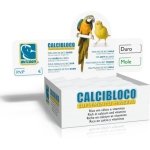
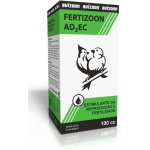
AVIZOON COLINA CaP
2.84 € – 6.16 €Price range: 2.84 € through 6.16 €
Liver protector, with trace elements, calcium and phosphorus.
Description
MINERAL SUPPLEMENT, CORRECTOR OF EXCESS FAT AND LIVER PROTECTOR (P)
The usual diet of captive birds has two main defects: in addition to an excess of fat, there is also a deficiency in minerals and, above all, phosphorus.
The majority of grains distributed to birds are oilseeds (turnip, poppy, niger or seed, hemp) which contain between 30 and 40% fat.
In fact, it is important to consider that when the bird peels the grain, it leaves the casing (shell) to consume only the interior where all the fat is found. Such excess, tolerable for birds living outdoors and in a cold season, is however very serious for those living indoors or even in unheated enclosures, where the temperature does not drop below 10º Celsius. Birds tolerate this excess fat more or less well, but it can be the cause of serious and common problems: hepatitis, followed by enteritis.
Food-related hepatitis develops slowly (2 to 3 or 4 weeks) and, at first, the bird seems “stuck up” for a while, then more and more frequently.
It is constantly at the feeder, but wastes more than it actually eats.
The belly is red, often swollen and its breathing may be labored although silent.
A red belly is a sign of enteritis with intestinal congestion. Breathing is affected by the liver, which is hypertrophied (up to 2 to 3 times its normal volume). At autopsy, we find the liver discolored, yellowish or mastic-colored.
Hepatitis has a fatal outcome unless prompt intervention occurs at the onset; unfortunately, in most cases, when faced with these symptoms, amateurs and often even the most experienced breeders start by giving medication (antibiotics, etc.) whose effect is even worse.
It is possible to correct the diet and CHOLINE Ca/p was designed for this purpose: using it two days a week (or 1 day in every 3) corrects excess fat and prevents it from accumulating in the liver. Its continued use at the onset of hepatitis often helps to halt its progression.
CHOLINE Ca/P is not a medicine and therefore has no contraindications.
CHOLINE Ca/P also contains minerals, trace elements, calcium (Ca) and, above all, phosphorus (P). Phosphorus does exist in grains but in an organic form (pictic acid) that cannot be used by birds, for which a supply of mineral phosphorus is essential. It is therefore necessary to make this contribution regularly and CHOLINE Ca/P, given twice a week, perfectly performs this function.
COMPOSITION
Choline, Sorbitol, calcium phosphorus, trace elements (cobalt, zinc, manganese, sodium and copper)
INDICATIONS
Hepatitis due to fat overload and other liver problems, mineral deficiencies, ossification, etc.
HOW TO USE
CHOLINE Ca/P, as already mentioned, is not a medicine but rather a food supplement that, for animals such as birds, will be mixed into the feed. The liquid form was designed taking into account the special diet of granivores, which does not allow such a mixture.
It should be used regularly and on two non-consecutive days per week (1 in every 3 or 4 days on average).
CHOLINE Ca/P is added to the drinking water at a dose of 1 ml (20 to 25 drops) in 60 cc of fresh water for any type of bird).
This corresponds roughly to two heaped tablespoons of CHOLINE Ca/P per one litre of water.
PRESENTATION
30 cc dropper bottles and 100 cc packages.
Our products can be used on the following birds: Canaries, Parakeets, Parrots, Exotics, Pigeons, Pheasants and others.
WEIGHTS AVERAGES OF SOME BIRDS: APPROXIMATE DAILY CONSUMPTION
CANARIES _ 15 to 40 g CANARIES _ Water: 1 to 3 cc
PARROTS _ 20 to 60 g _ Seeds: 2 to 20 g
PARROTS _ 400 to 600 g
PIGEONS: LIGHT _ 250 to 300 g PIGEONS: _ Water: 45 to 50 ml
MEDIUM _ 450 to 500 g _ Seeds: 1/10 of the weight or 20 to 100 g/day
HEAVY _ Up to 1000 g
EQUIVALENCES
1 teaspoon = ± 3cc = 60 drops = ± 5 grams of powder. | 1 tablespoon = ± 9cc = 180 drops = ± 15 grams of powder. | 1 ml = 1 cc = 20 drops.
OBSERVATIONS
When treating a bird suspected of having an illness, it should be separated from all the others whenever possible during the treatment period until it has fully recovered, disinfecting the housing with VIRUDINE or VIRKON S.
In winter, birds drink less, so the doses in the water should be slightly increased. If, for example, we are giving 2 cc of a
product in the summer, in winter it should be increased to 3 cc.
Additional information
| Weight | N/A |
|---|---|
| size |
30 ML ,100 ML |

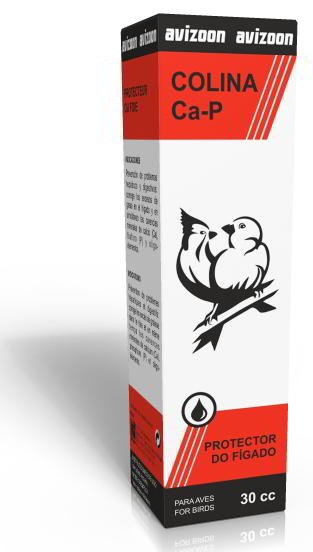






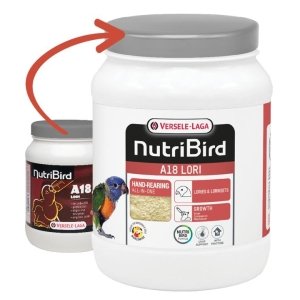
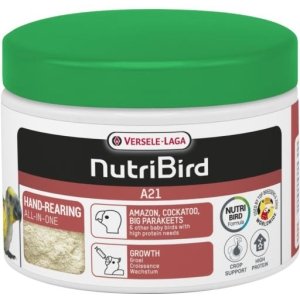
Reviews
There are no reviews yet.